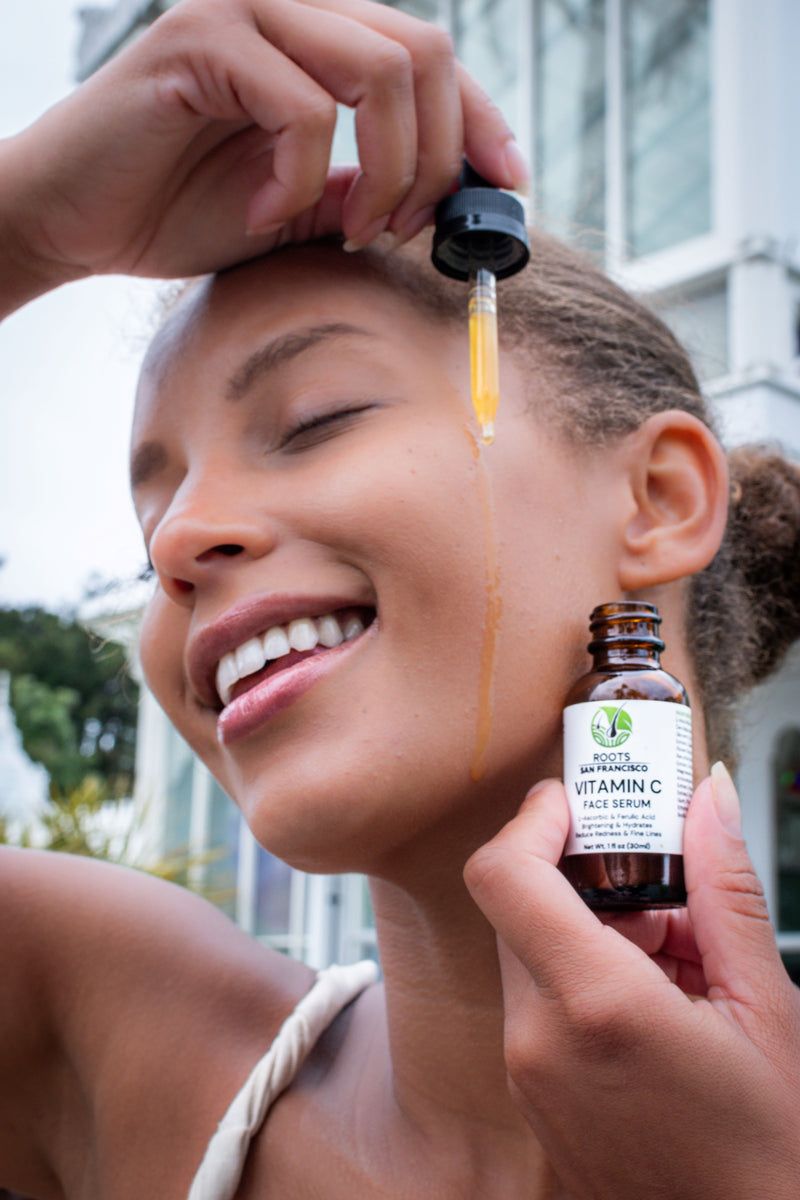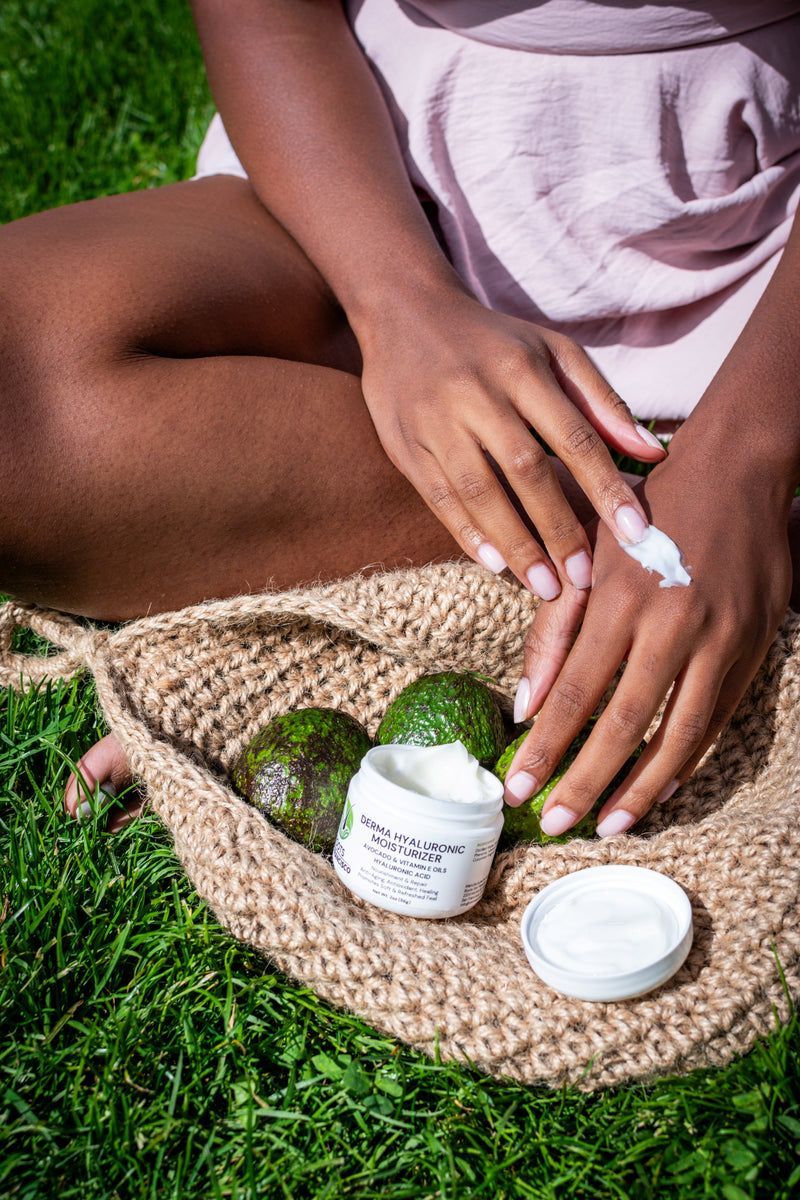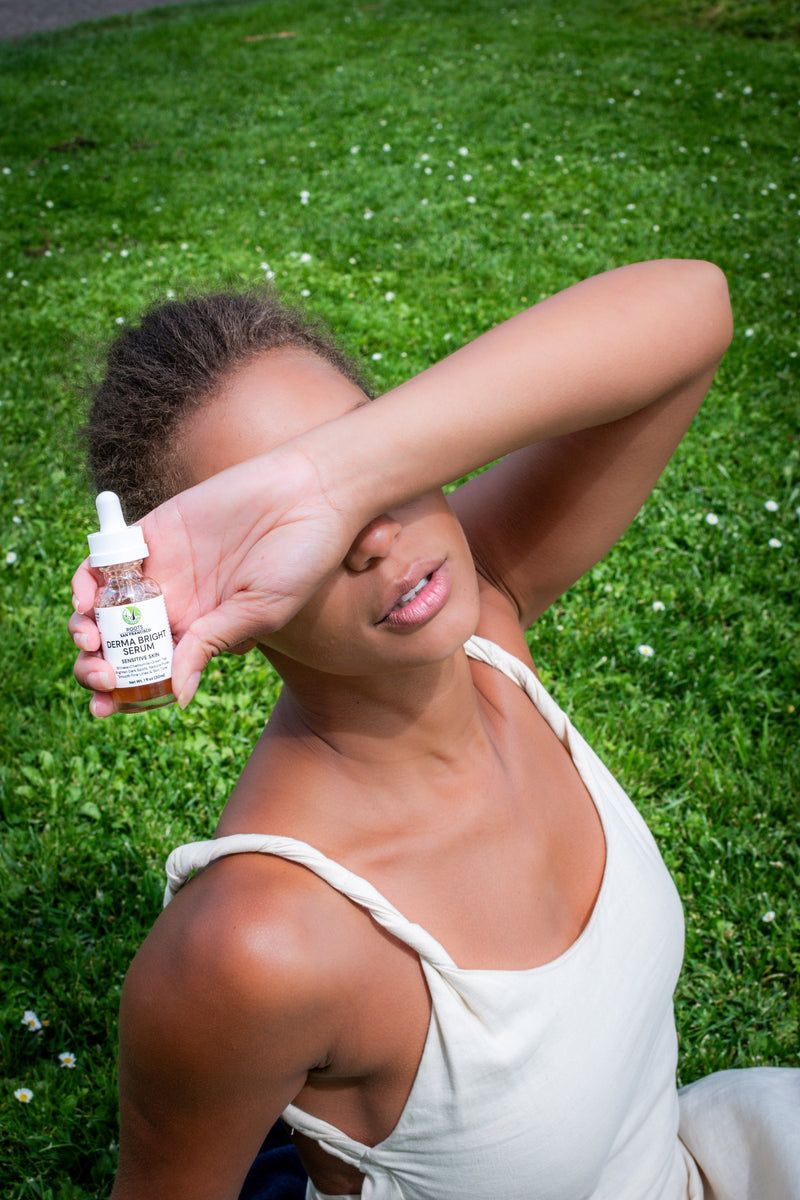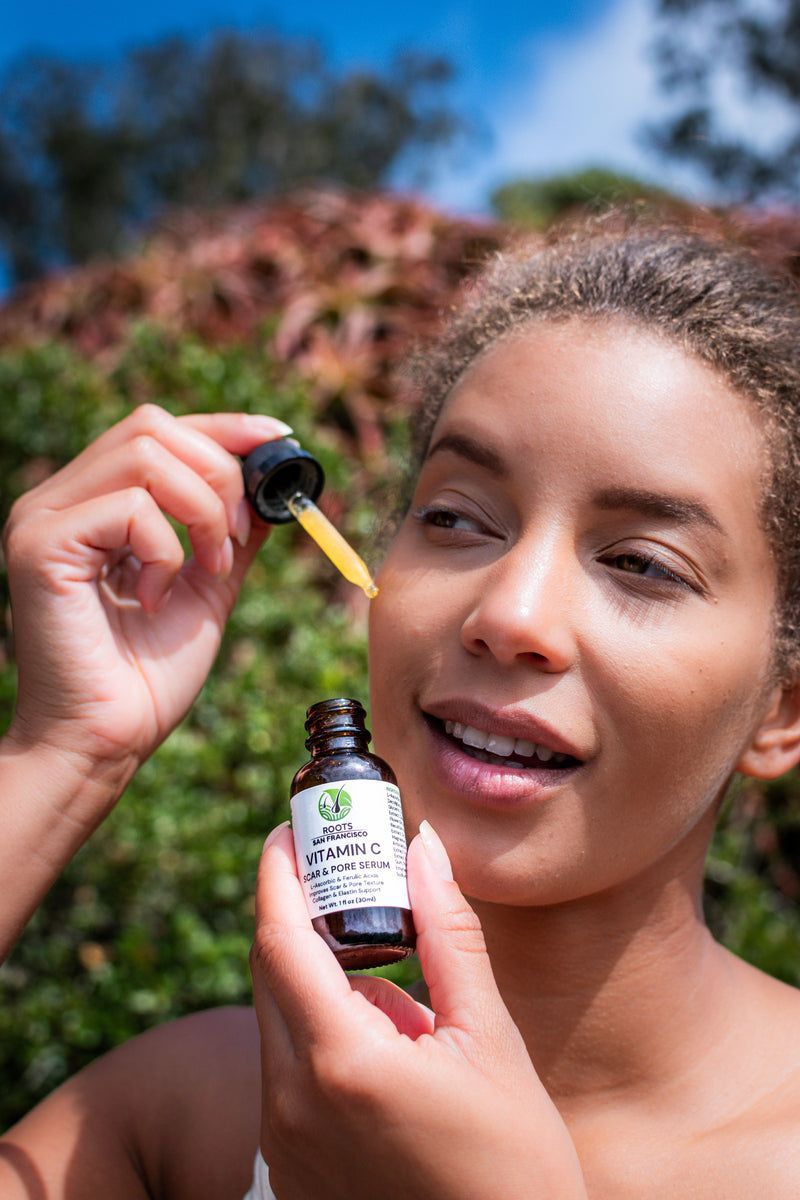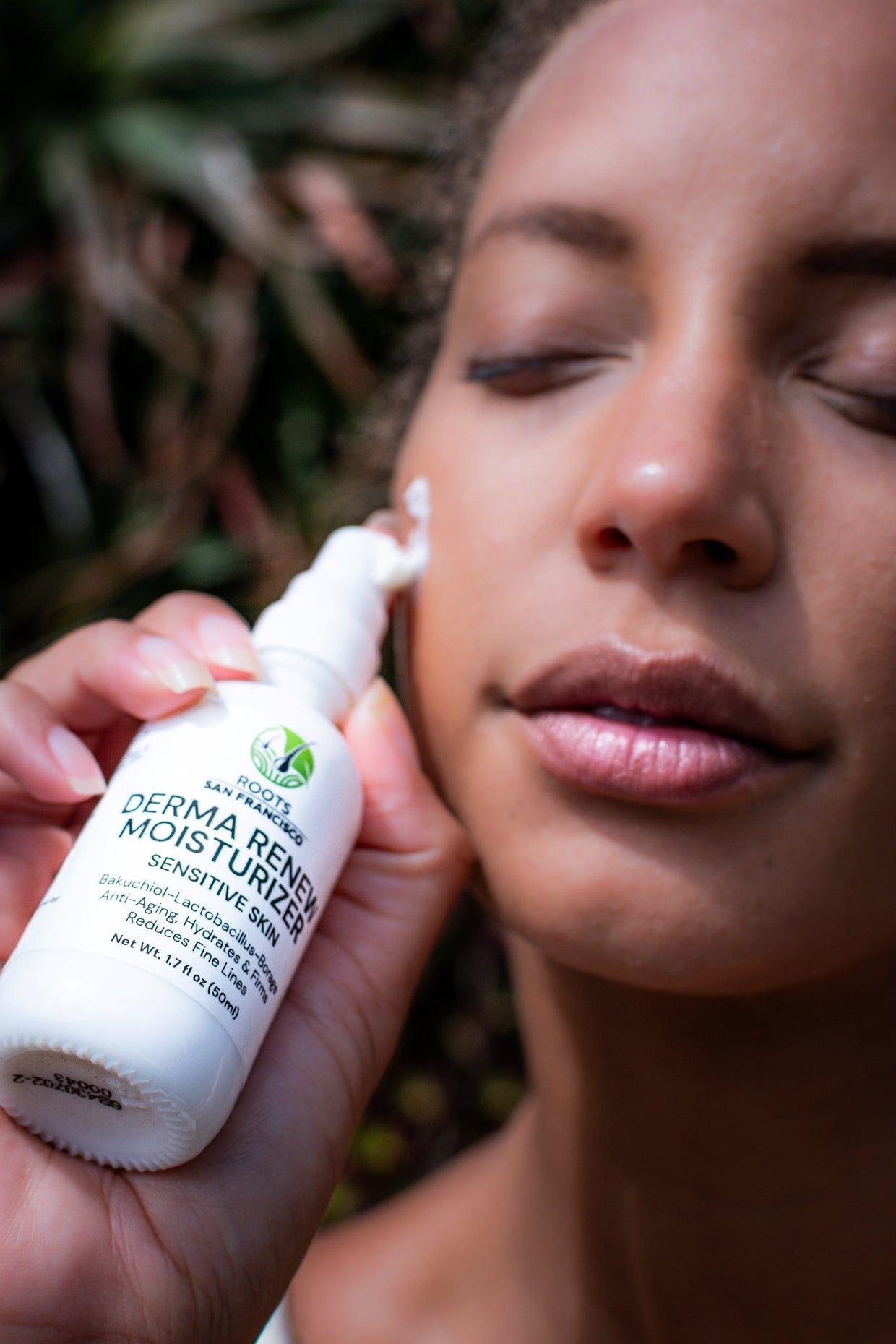What is Anti-Aging Serum? Benefits, Ingredients, Application
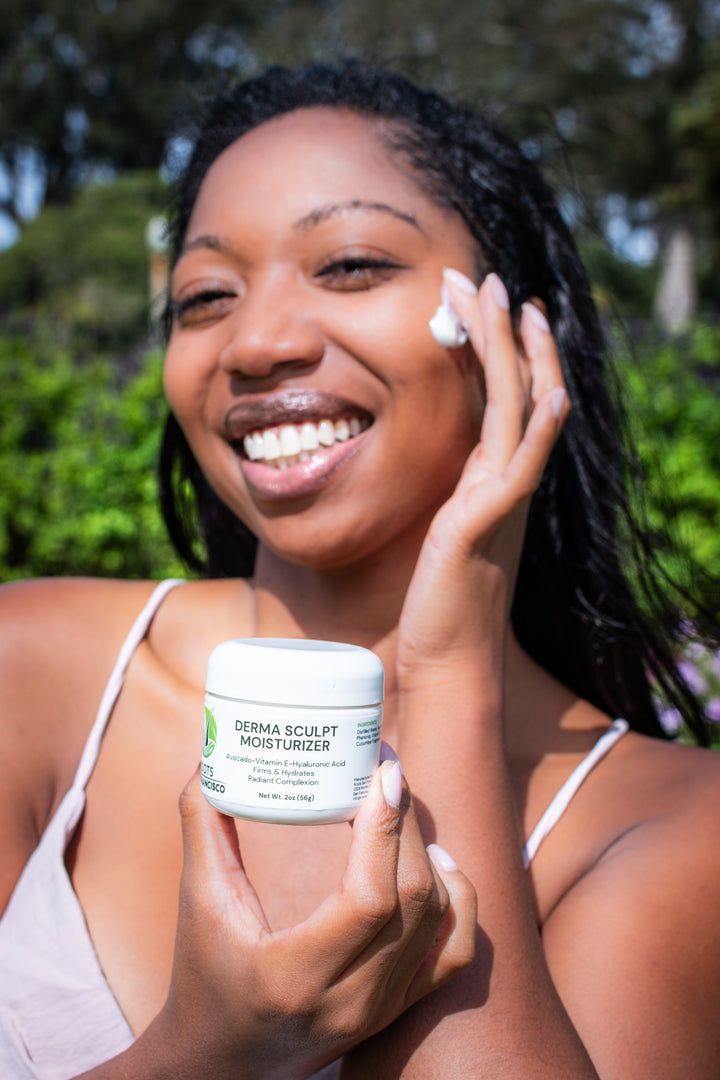
An anti-aging serum is a light skincare product that prevents or minimizes signs of aging, such as wrinkles, discoloration, and dry skin. These products contain active ingredients in high concentration to solve a specific skin issue.
Some dermatologists believe these anti-aging serum products work and recommend them as they go beyond the superficial level. They penetrate deeper into your skin, which moisturizers and creams can't do.
To help you get to know anti-aging serum more, we'll discuss the following here:
- What benefits do it offer
- Common ingredients of anti-aging serums
- How to properly apply it to your skin
Why Should You Use Anti-Aging Serum
Aging is inevitable, and we can't avoid it. Our skin will change with time, but there's nothing wrong with keeping the youthful look longer, right?
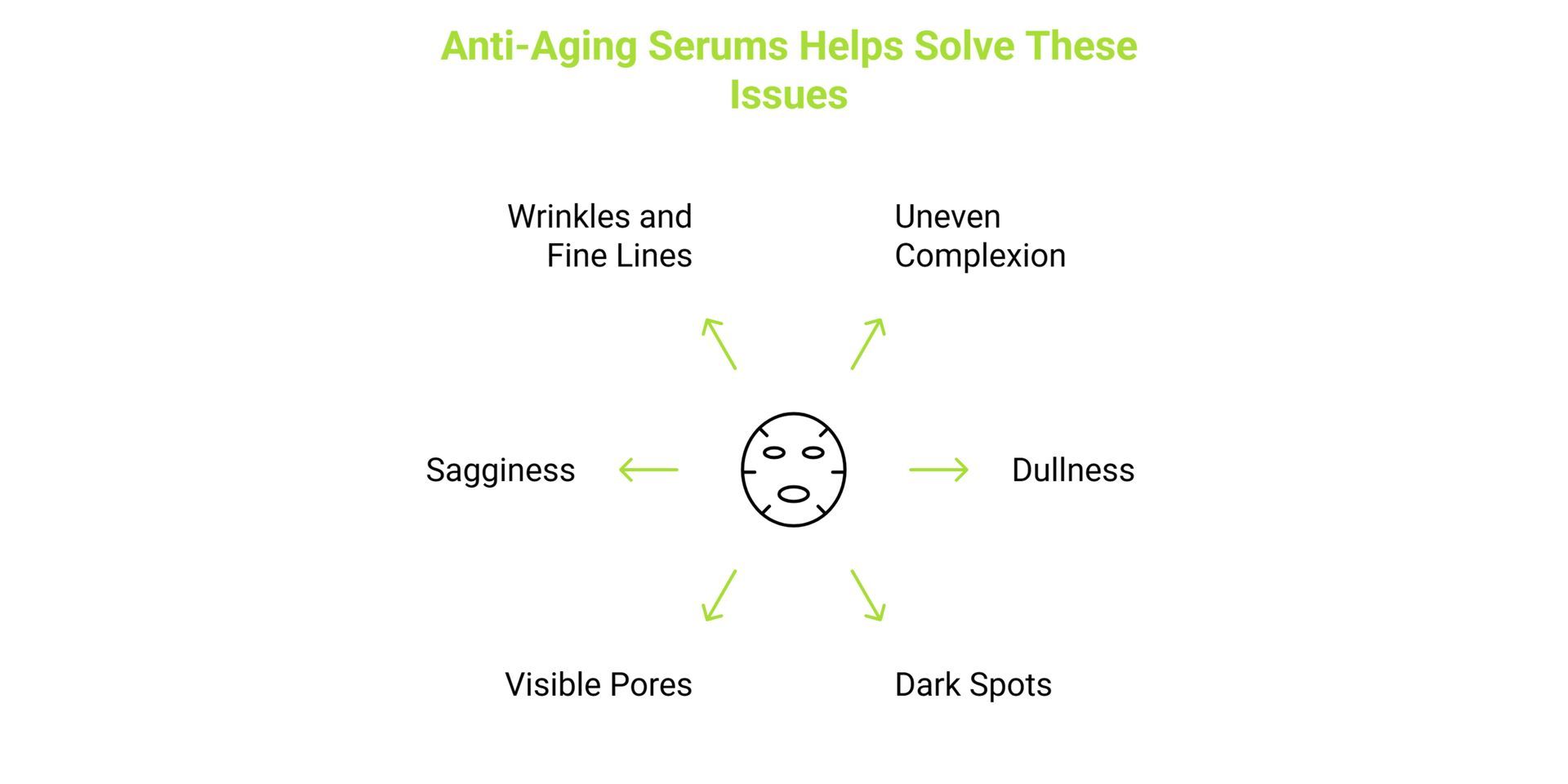
Anti-aging serums prevent the visible signs of aging skin and improve its texture and elasticity. The general signs that it can help prevent are:
- Uneven skin complexion
- Dullness
- Dark spots
- Visible pores
- Sagginess
- Wrinkles and fine lines
With their small molecules, these skincare products penetrate your skin more deeply. They are also more effective because they can contain up to 70% active ingredients, different from the usual 5-10% in other products.
What Are the Key Ingredients of the Best Anti-aging Serums
There are many anti-aging products available, and it can be a headache to find one that works. However, some of the best serums in the market have the following key ingredients:
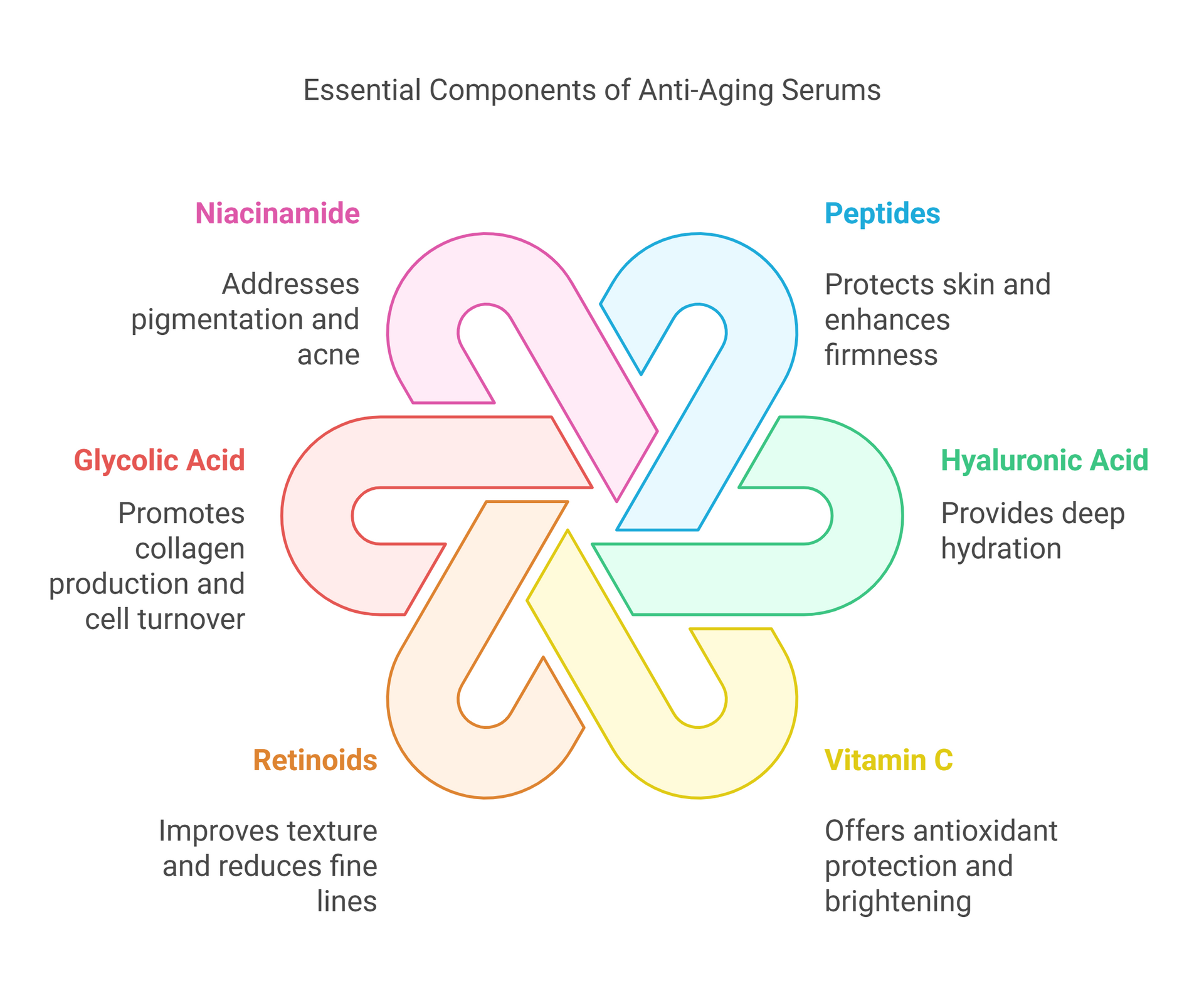
Peptides
Peptides form naturally in the body but dwindle over time. These amino acids act like a barrier to protect the skin against extrinsic factors, such as air pollution, UV rays, and other toxins that assail it.
Peptides also make the skin firmer and thicker, so fine lines and wrinkles are less likely to pop out.
Hyaluronic Acid (Hyaluronan or Hyaluronate)
Hyaluronic acid (HA) is a great moisturizer. It's one ingredient you should look for in a face serum to keep your skin flexible and smooth. HA is also common in other skin care products.
One study proved the efficiency of HA serums for increasing skin hydration right from the moment of application.
Vitamin C
Vitamin C can do much more than boost the immune system. It can also be very beneficial for different skin types.
For example, one major cause of early aging is exposure to the sun. Vitamin C provides antioxidants that can combat this. It's also known for brightening the skin and minimizing the appearance of age spots.
Retinoid
Retinoids, synthetic forms of vitamin A, are among the most popular anti-aging serum ingredients. They help improve skin texture by counteracting free radicals that damage natural collagen.
The common type of retinoid applied in serums is usually retinol, which helps reduce the appearance of fine lines while maintaining suppleness.
Glycolic Acid
Glycolic acid is an alpha hydroxy acid (AHA) derived from sugarcane. It is a very good anti-aging ingredient because it lessens sun damage and removes dead skin cells from the surface.
It also helps in reducing wrinkles and fine lines by promoting collagen production.
Niacinamide
Niacinamide serum is the topical form of vitamin B3 and is a powerhouse for solving multiple skin concerns.
It reduces hyperpigmentation and redness. Niacinamide also lessens acne by controlling excess oil production, which can clog your pores.
How to Apply an Anti-Aging Serum
It's best to apply your serum once or twice a day. But make sure to check the ingredients first. Some, like retinol, can cause dryness if used more often.
Here's how you can use anti-aging serums more effectively:
- Prep your skin. Do a proper cleansing and toning to improve serum absorption.
- Apply your serum before moisturizer or cream. These two are too heavy for your skin and can block the serum from entering more layers.
- Use a small amount. Place a few drops on your face and neck and gently pat it. Remember to avoid your eye area.
If you're using a serum with retinol in the morning, apply sunscreen afterward. Products containing retinol can make your skin more sensitive to sunlight. Use a sunscreen with SPF 30 or higher to keep your skin safe and maintain the serum's effectiveness.
Possible Side Effects
Not all anti-aging serums and products will bring benefits to your skin. Some might cause harm and negative effects.
For instance, active ingredients like glycolic acid or vitamin C might cause a tingling sensation, irritation, or redness if your skin is too sensitive. If you experience any of these issues, stop using the product altogether.

To avoid serious damage and discomfort, test the serum behind your ears, elbow, forearm, or wrist before applying it to your face.
Recommended Anti-Aging Serums
Below, you’ll find our three most recommended anti-aging serums from Roots San Francisco.
FAQs About Anti-Aging Serums
What serum is best for anti-aging?
The best anti-aging serum is the one that works for your current skin issue. It's best to understand your skin needs and consult a dermatologist before deciding which one to buy.
Do anti-aging serums really work?
Yes. There are many effective anti-aging serums on the market. Some ingredients, such as retinol, vitamin C, vitamin E, and peptides, have shown effectiveness through different studies.
At what age anti-aging serum is best?
It's the best for those in their 40s and 50s. However, those in their 20s and 30s can also start using it as a precaution.
Can people with sensitive skin use serums?
Yes. But it's best to do a patch test and consult your trusted dermatologist before applying anti-aging serum to your face or body.
Start Using Anti-Aging Serum with Roots San Francisco
Anti-aging serums can help support and keep your skin healthy as you age. Adding one to your skincare routine might be the best decision. They can offer what other skin care products can’t and give you a higher percentage of ingredients your skin needs.
At Roots San Francisco, our serum collection combines effectiveness, quality, and safety. Feel free to browse it and find the perfect product for your skin.
